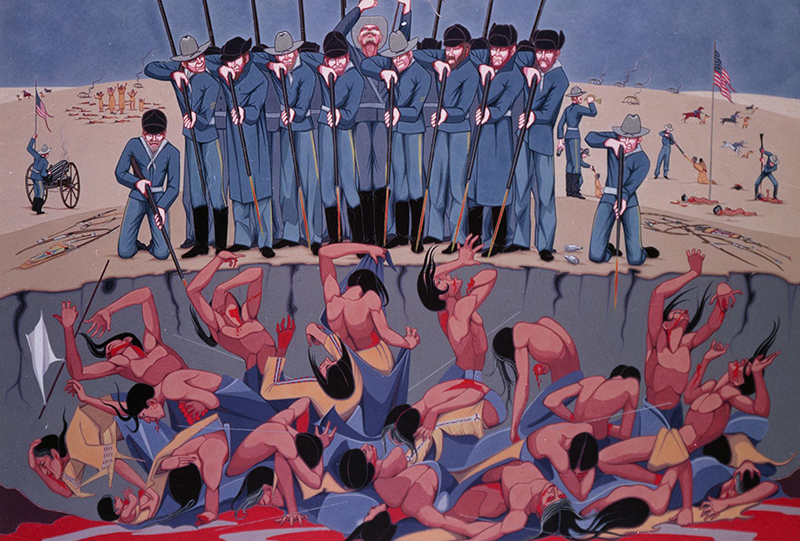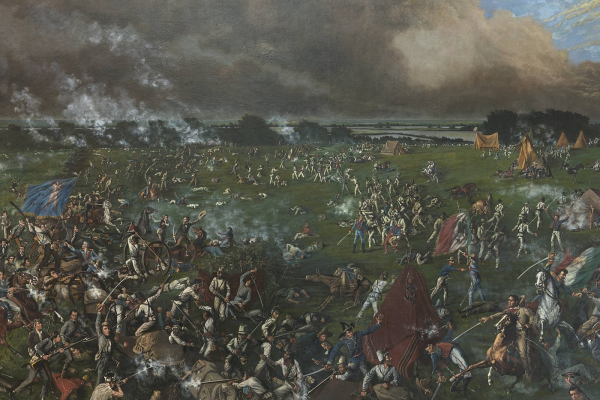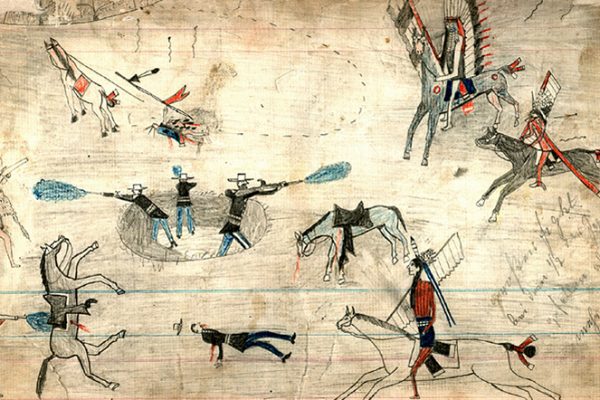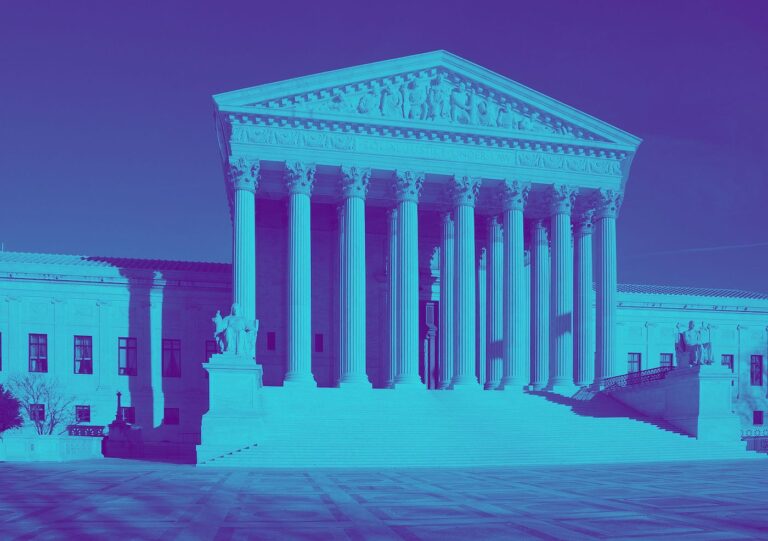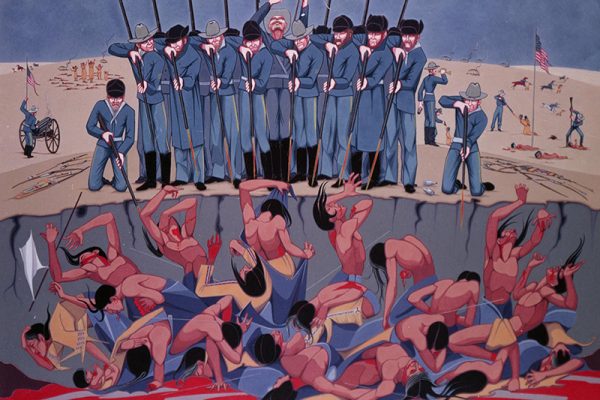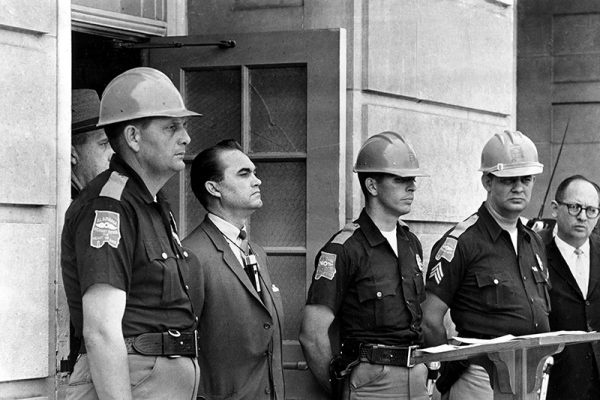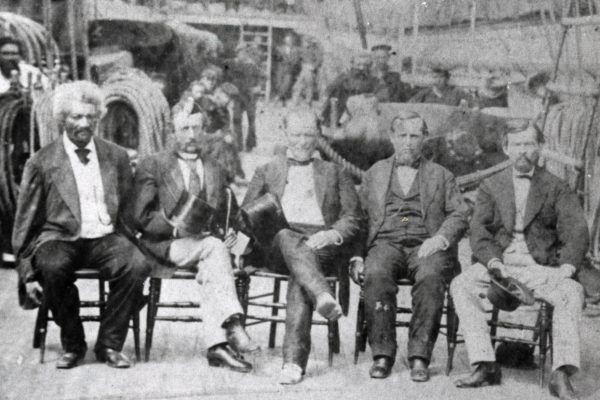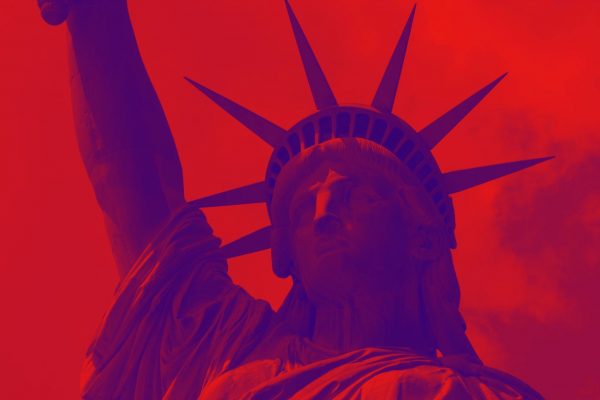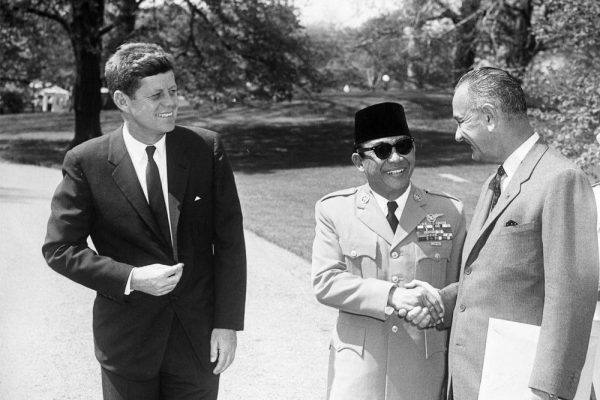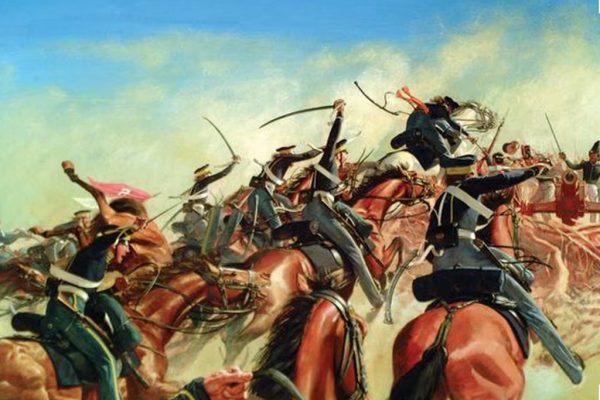“I do not hesitate to declare, with all my soul, that the character and conduct of this nation never looked blacker to me than on this 4th of July!” When Frederick Douglass spoke these words in 1852, his target was the hypocrisy of American slavery. But the scope of his indictment is potentially much wider: throughout its history the United States has routinely contradicted its founding ideals.
Indeed, the U.S. state arose through the mass violation of life, liberty, and property. “The origin of the United States in settler colonialism—as an empire born from the violent acquisition of indigenous lands and the ruthless devaluation of indigenous lives—lends the country unique characteristics,” writes Roxanne Dunbar-Ortiz. We can neither understand nor confront the persistence of white supremacy today, she argues, if we don’t reckon with its deep roots in U.S. history.
Even when liberty and equality have prevailed domestically, they have often involved the subordination of populations abroad. As Aziz Rana notes, there is a “persistent political link in historical practice between U.S. imperial power and internal economic equality.” It is “only by severing the ties between domestic economic reforms, nationalist belligerence, and external power projection” that genuine democracy can flourish, he warns.
Other contributions to this week’s July 4th reading list highlight the gap between American ideals and American reality. Pulitzer Prize winner Jefferson Cowie examines how the rhetoric of freedom has been used to bolster white supremacy; David Waldstreicher reviews the work of radical historian Gerald Horne; Nikhil Pal Singh deconstructs settler-colonial narratives; Stuart Schrader takes on the murderous legacy of Cold War anti-communism; and more.
Historian Gerald Horne has developed a grand theory of U.S. history as a series of devastating backlashes to progress—right down to the present day.
More than simple racism or discrimination, it is built upon violent elimination.
In practice, domestic equality has often relied on dominance and exclusion.
Seventy years after the civil preparedness film Duck and Cover, it is long past time to reckon with the way white supremacy shaped U.S. nuclear defense efforts during the Cold War.
Talk of American freedom has long been connected to the presumed right of whites to dominate everyone else.
The problem isn't new; it's the bordered logic of global apartheid itself.
Celebrations of multiculturalism obscure the country’s settler colonial history—and the role that immigrants play in perpetuating it.
How the Washington-backed Indonesian mass killings of 1965 reshaped global politics, securing a decisive victory for U.S. interests against Third World self-determination.
Contemporary gun violence is not so much terrorism as tradition.
Donald Trump says there is “a crisis of the soul” at the border. He is right, though not in the way he thinks.
